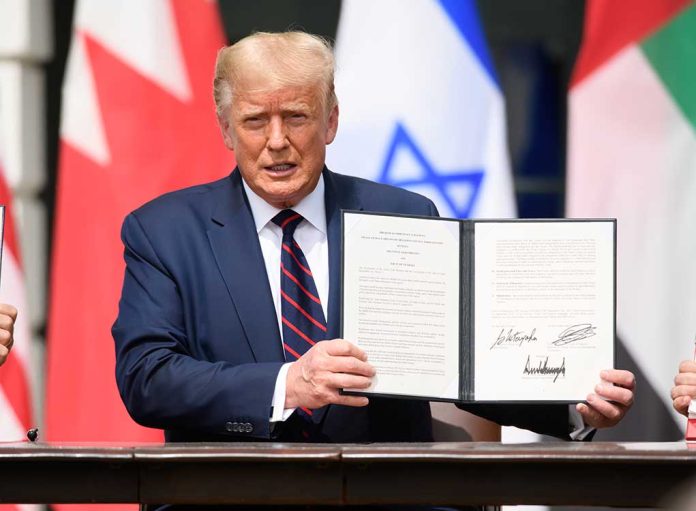
President Donald Trump’s executive orders mark a definitive shift back towards energy independence and economic growth, raising questions about the future impact on American energy policy.
Key Takeaways
- Trump’s executive orders revoked many previous energy policies from the Biden administration.
- An “energy emergency” was declared to address past energy inefficiencies and regulatory burdens.
- The orders aim to remove regulatory barriers for natural-gas pipelines and nuclear power.
- Wind energy developments on federal land are effectively halted under the new orders.
- The U.S. withdraws from the Paris Climate Accords, as per these orders.
Revoking Previous Policies for Energy Abundance
President Donald Trump signed executive orders on Inauguration Day, 2025, systematically dismantling Biden-era energy policies. This pivot was designed to invigorate U.S. energy independence and prioritize economic growth. Trump cited climate extremism and past poor energy policies as major issues, using his executive orders to reverse these trajectories. Central elements included removing support for wind energy and exiting international climate accords that had previously restrained U.S. energy exploitation on a global stage.
The orders aim to correct inefficiencies within the American power grid, which has faced warnings of power shortages from entities like the North American Electric Reliability Corp. Efforts to address these shortfalls include easing restrictions on the construction of natural-gas pipelines and nuclear power facilities. These endeavors hope to mitigate the anticipated power generation losses forecasted due to existing power-plant closures.
This morning, I joined @Varneyco on @FoxBusiness to discuss how Biden’s destructive energy policies have crushed American energy production and investment.
I outlined how President Trump’s plans, including executive orders and legislative action, will restore energy… pic.twitter.com/zFleHzBt4h
— Congressman Dan Meuser (@RepMeuser) January 15, 2025
A Shift in Environmental and Economic Strategy
Trump’s administration, through these orders, has targeted red tape impeding infrastructure projects, citing issues like California’s wildfires to justify relaxed forest management regulations. Additionally, the orders rescind the Biden EPA’s electric vehicle mandate and the Energy Department’s gas appliance ban, steps that Trump argues restore market freedoms and remove distortions that harm reliable power sources. The executive halting of wind energy, achieved by withholding federal permits, furthers Trump’s critique of manipulated energy markets.
The mandates further solidify the administration’s stance by retracting from the Paris Climate Accords, a move that Trump argues symbolizes a rejection of European-style green policies that he claims have shown limited effectiveness in actual decarbonization. These decisions intend to refocus American policy towards pragmatic energy utilization that prioritizes domestic resources over global environmental agreements.
3. Withdrawing from the Paris Climate Agreement
– President Trump signed an executive order officially withdrawing the United States from the Paris Climate Agreement, emphasizing the negative economic impact of the accord on American businesses and workers.
– He reaffirmed his… pic.twitter.com/WTRYLVYLeJ
— MatrixMysteries (@MatrixMysteries) January 21, 2025
A Broader American Sentiment
Trump’s actions resonate with a broader sentiment prevalent among many Americans and financial institutions who argue that other pressing issues warrant priority over climate concerns. The orders suggest that energy-rich prosperity and energy security form the backbone of current strategies, with a commitment to creating a business-friendly environment that rejects the constraints perceived in recent years.
This recalibration reflects a shift back towards seeking energy sufficiency and national economic growth, acknowledging the current energy landscape’s existing critiques and attempting to address such disparities through pragmatic deregulation and domestic focus.





